The use of cloud technologies in stock trading - features and prospects
Exchange trading has long been the area of application of the most advanced technologies. The latest inventions of mankind instantly come here, starting from the telegraph ending with the Internet. Cloud technology is no exception. What are the demands of consumers in this sector? Does the IAAS market in Russia satisfy the new realities?
Our today's material continues a series of reports from the fields of the forum Cloud Technologies in Russia : Part I , Part II , Part III , Part IV , Part V. And today, readers of our blog and users of Habr will have an interesting discussion on how cloud technologies are changing the interaction mechanisms of stock market players. Representatives of all the largest brokerage companies of the Russian Federation were involved in the discussion. It was hot)
')
Participants:
Moderator of the discussion , Vadim Zakroychikov, Derivatives Market Department, Moscow Exchange
Nikita Tsaplin , Managing Partner, RUVDS
Konstantin Ivaylovsky , Deputy Director, IA “MFD- Info Center ”
Yury Savitsky , Head of Algorithmic Trading, Zerich Capital Management IC
Yury Maslov , Managing Director, Member of the Board, IT Invest IC
Sergey Slukin , Head of DMA and Algorithmic Trading, FINAM JSC
Lada Kobkina , Broker Business Project Manager, BCS Company

The round table participants and colleagues were warmly welcomed, and the moderator, Vadim Zakroyshchikov, Derivatives Market Department, Moscow Exchange made the opening speech:
- Colleagues, good afternoon! We are very glad to welcome you at an interesting round table, i.e. It is no secret that building high-performance trading systems is quite a costly exercise, not only for initial bones, but also for the operational costs that need to be borne. And a few years ago, the following scenario seemed to be complete fantasy, i.e. I, as an algorithmic trader, could manage with that trading system with minimal delay using the phone, lying somewhere on the beach, and it was worth it, as usual expenses for cellular communication. A few years ago it seemed to be a complete fantasy in general, but now it is a reality that is already available in our Russian reality, and all thanks to the use of cloud technologies in stock trading, this is the central theme of our round table. My name is Vadim Zakroychikov, I represent the Moscow Stock Exchange. And before we begin our interesting discussion, I would like to briefly introduce our distinguished speakers. In order from me, i.e. Nikita Tsaplin - RUVDS Managing Partner, Konstantin Ivaylovsky - MFD-Info Center, Yury Savitsky - Zerich Capital, Lada Kobkina - BCS, Sergey Slukin, oddly enough, Finam, and Yury Maslov - ITinvest. And the question from which I would like to start is - what models of using cloud technologies in stock trading do you see and what, from your point of view, is the advantage of using these technologies for customers. So, I'll start in order.

Nikita Tsaplin, RUVDS Managing Partner:
- So, I'll start with the answer to the first question. Accordingly, there are several models of use. The first model of use, when, figuratively, when a company is engaged in algorithmic trading, uses, directly, virtual VPS servers to optimize the cost of the structure, for example, to test any strategies, it may be cheaper to try, for example, some cloud solutions for date - exchange center, before purchasing expensive equipment. The second model is that the consumer is a broker company that resells these services to end customers and thus provides a related service or even organizes a certain point of customer involvement, because not all brokerage companies provide such a service. Probably, if you select models - there are only two of them. And there, as it were, inside these models, the service is divided into several more options, i.e. it can be - placement in the data center of the exchange, equipment, it can be placement in the data center of the broker, or provider.
Vadim Zakroyshchikov (Moderator): - Konstantin, from the point of view of your business, what patterns of use do you see, are there any advantages?
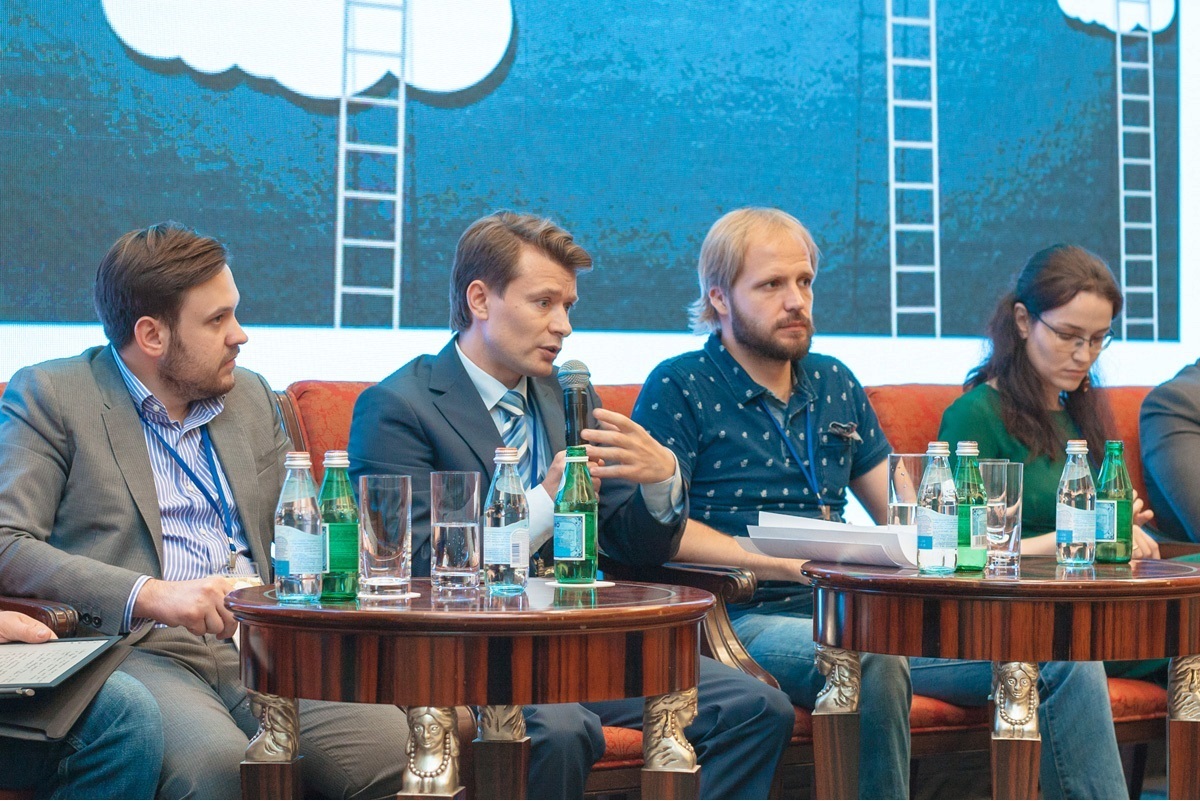
Konstantin Ivaylovsky, Deputy Director, IA “MFD-Info Center”:
- First, I would like to understand what cloud technologies are, because, in fact, cloud technologies are called some technologies that are located somewhere, I don't care how important it is for them to do my function. This concept, it appeared not so long ago, although it consists, if you look, of three main elements. One item is data storage, i.e. as a noun, passive some information, it is stored. These are certain computational powers that make the algorithm, it is rather a verb. And it can be some cluster on which the operating system is put, computational databases, some specific algorithms. All these models, they are used.
Here we offer software solutions to financial market companies and provide services themselves. Almost all our clients use clusters, i.e. at least the test circuits, we are talking about connecting to the exchange, some computer systems, these are risk systems, they are usually all located on virtual machines, on clusters. And if we talk about customers, many customers, like bank employees, where they come, often have some virtual machines that help them, i.e. not just a computer, but some virtual environment on which they run the machines and have access from anywhere to these machines just to solve their problems. And clients, ordinary, including, clients of brokers, banks, they also have their usual cluster solutions. But with regard to computing power, some banks, some brokerage and companies, and traders also use such solutions, including, among other things, with a big date, or simply with optimization of computing. Here it is used. We, among other things, provide some cloud for managers, where they transmit signals, and operations are mirrored on clients' accounts. This can also be called a certain cloud, therefore, I think it is expedient, in general, before speaking, it is necessary to somehow define more narrowly, specifically what a cloud is and somehow set the context.
Vadim Zakroychikov (Moderator): - Thank you. Yuri, how can you characterize possible patterns of using cloud technologies, how does this apply to your company, what benefits do your customers see?
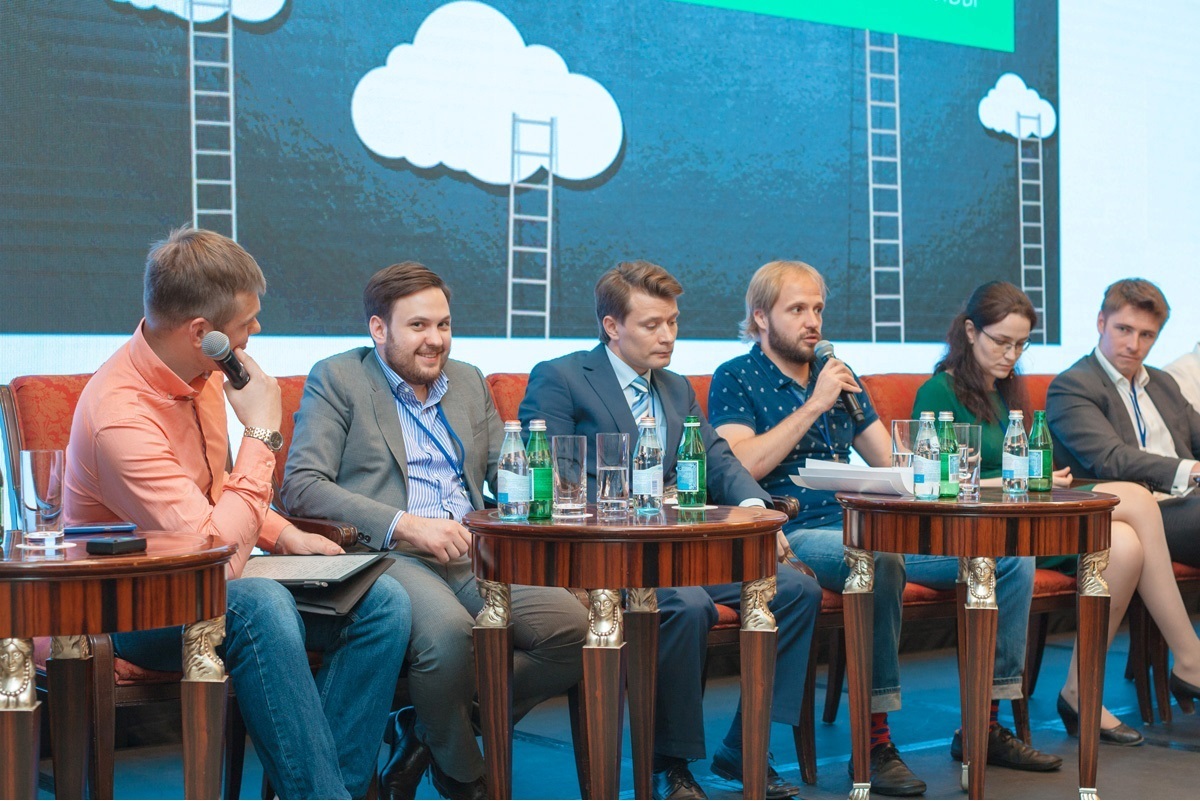
Yury Savitsky, Head of Algorithmic Trading, Zerich Capital Management IC:
- Well, I see two options for using cloud technologies, i.e. even divide them in our company into two options. The first is the use of the virtual infrastructure, and the second is the use of the platform. Here, in my opinion, now many companies offer virtual infrastructure, if we talk about virtual infrastructure, then sooner or later we just run into the laws of physics, where we cannot improve the speed, or some implementations of our solutions that we use. But, however, I don’t know of any company that specifically offered such a cloud platform that would allow it to actively and successfully complete transactions on all kinds of global trading floors and exchanges. And so the second part, I believe, is the most underdeveloped in our Russian reality at the moment.
Vadim Zakroychikov (Moderator): - Thank you. Lada, what is your opinion?
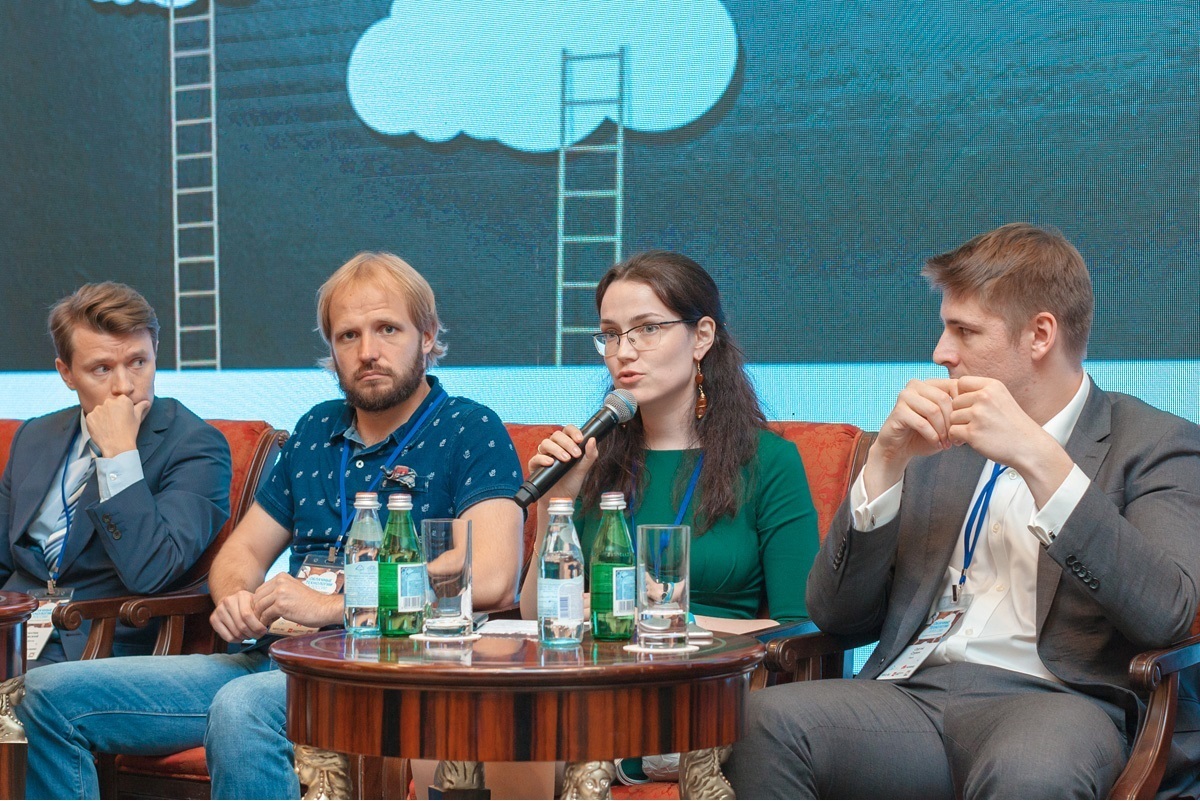
Lada Kobkina, Project Broker Business Manager, BCS Company:
- We probably have, let's say, three models then, but what Nikita said here. We can use for ourselves as a broker. For example, we have cloud technologies, are used for our branches that are located remotely, we call them mini-branches, and basically, we use cloud technologies for our clients. Here we have two services. One of the services is that Kostya told us that we have a similar service - this is a follow-up. And, accordingly, customers are offered a virtual machine, a fairly standard, not very expensive, on which a certain image is installed, software is installed, i.e. the client does not need to download anything on his own, set anything up, enter a username and password, please, you have made the minimum settings, you will have a repetition of the manager’s transactions. And the second more complex technology is the placement of equipment in the data center of the exchange. This service here, it also enjoys its success, but it is already more specific for large algorithmic traders. The second question you had was - what advantage?
Vadim Zakroyshchikov (Moderator): - Yes, what benefits does the client receive when applying?
Lada Kobkina: - Yes, let me tell you a little briefly then, we will probably stop in more detail later. The first is financial savings, i.e. you do not need to place equipment in the data center, you do not need to buy a server. Algorithmists have special needs for servers, they are quite expensive - the simplest are from 100 thousand rubles and further, in general the guys charge tens of thousands of dollars. The second is the placement of equipment in the data center, the service is also paid by the exchanges, i.e. 10 thousand for accommodation, there is a one-time, and 10 thousand per month, and, accordingly, additionally pay for any gateways, Plaza 2, etc. - this is a lot of bones, there are 2000 for a plaza. If you take a virtual server , then you do not need to pay for the placement of equipment in the data center, you do not need to buy your server, you just need to buy a gateway and take the service that the broker has. We have, for example, 4,000, and you have a 20,000 exchange, there is a difference for the client, it is significant.
Vadim Zakroychikov (Moderator): - Well, a little difference, but there is.
Lada Kobkina: - Well, yes, several times. She is already pleasant. This is the main thing when choosing property. Additionally, Nikita is there, I don’t know why Nikita didn’t talk about this topic, RUVDS have round-the-clock support; if a failure happens, they will promptly decide. There is generally an uninterrupted problem with the Internet, if you have a computer at home, etc., I know a lot of funny stories about the fact that the cat sat on the keyboard, etc., that is, you will never have such a virtual machine and such will never happen. You will not be there, that the cable has touched someone's foot there and everything has flown out, well, there will be such pluses.
Vadim Zakroyshchikov (Moderator): - Sergey?
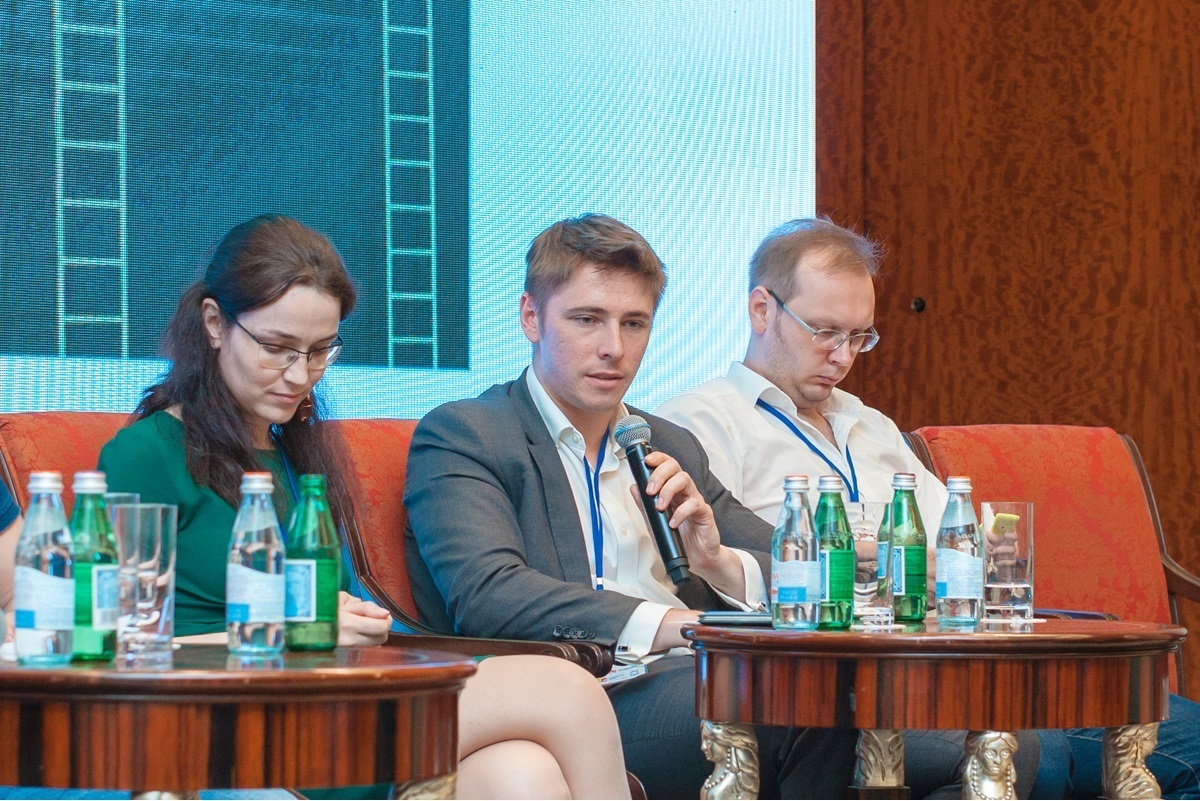
Sergey Slukin, Head of DMA and Algorithmic Trading, FINAM JSC:
- In fact, I mostly repeat Lada, because we have about the same business model. We have two options for using the clouds that we use at the moment. The first is the use in brokerage infrastructure, i.e. we have quite a lot of branches, both Russian and international, and the clouds still help us, to be honest with the infrastructure. And recently, we started, and with the help of Nikita, to provide our customers with cloud services, too. these are the same virtual machines, both in the data centers of the partner companies and the data center of the exchange. Actually the advantages are the same: i.e. The client gets the opportunity to try his HFT algorithms, somehow try himself in algorithmic trading, without spending significant money on infrastructure, i.e. without having there huge CAPEXs in tens of thousands of dollars and not paying, forgive me the exchange, a lot of money for the collocation and the network, and everything else. This is all the broker does for him, he breaks these bones into clients. That is, it is an additional client base, an additional turnover for the exchange, for a broker.
Vadim Zakroychikov (Moderator): - Great! Yuri, is there anything to add?
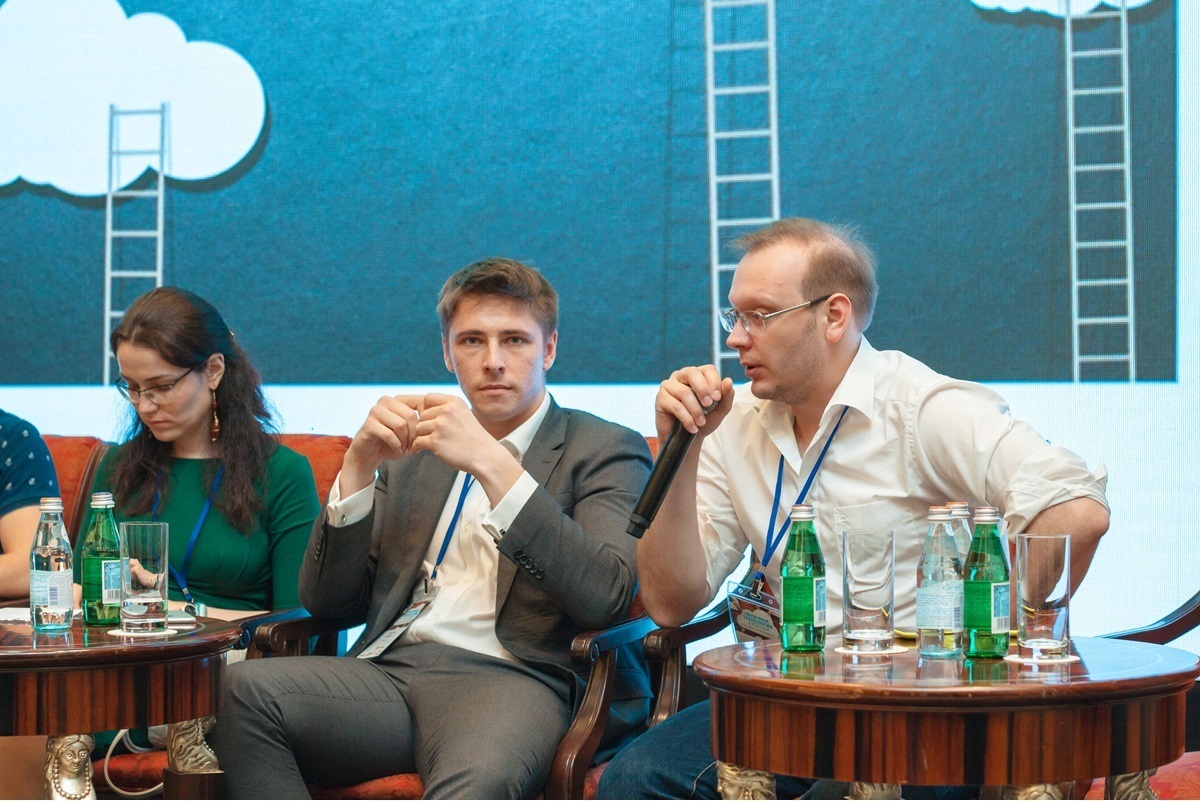
Yury Maslov, Managing Director, Member of the Board, IT Invest IC:
- A few words, in general, I will say about the fact that we, as a company, are rather conservatively looking at virtual-cloud solutions, however recently we have launched several projects where they can be useful. The main problem, in my opinion, is that we ourselves do not want to develop such solutions, because this is a non-core business for us, and providers in Russia who would provide the necessary level of service, first of all, are requirements for stability and speed and reaction , speed and support, you need more search. It is not very visible from the outside, visible to the uninitiated in the sphere.
Vadim Zakroychikov (Moderator): - Thank you. Here you raised a very interesting and important question. As it may seem, there are two ways to develop this virtualization and cloud technologies, i.e. build the infrastructure with your own hands, or somehow find a provider, or according to the White Label scheme, or directly somehow conclude an agreement with it and work with it. I would like to discuss this with you a little bit. Sergey, what do you think, which model is more promising, and which one do you use?
Yuri Maslov: - Listen, in fact, despite the fact that we are discussing IT issues here, this issue, I think, is more in the field of the manager's vision. If the project manager understands that it is more profitable for him to acquire a cloud and it is more profitable to realize the company's business in the cloud, then please, he does it. If it is more profitable to buy his equipment, organize his support, provide services to clients with the help of his infrastructure completely, without problems, he does it. But there are plenty of examples of clients who have the same business and meanwhile they implement their tasks in different ways, i.e. This is the answer to the question, everyone decides for himself.
Vadim Zakroychikov (Moderator): - Yura, correctly, I understand that after all you abandoned this idea of building your own virtual servers? Have you stopped at this yet?
Yuri Maslov: - We support this idea, but we keep it in a sluggish enough condition, because, on the one hand, we have rather high tariffs for these services so that the farm, which we have in the colocation, does not grow, because the understanding, whether we should develop it and take on these bones, or find a partner with sufficient service-level, we have definitely not formed. Closer to the second, of course, the model, because the core business must be a core business, everything else is a support.
Vadim Zakroychikov (Moderator): - Lada, you can add something.
Lada Kobkina: - I, probably, will confirm the guys, from the point of view of the broker and prof. the participant. From the point of view, maybe the client will tell you if this is interesting to someone. From the point of view of the client, the use of its own structure, or virtual, it depends primarily on the needs of the client, in fact. Those. if you are a novice trader, you own structure, computer at home is, in principle, sufficient. If you continue to develop as a trader in the future, respectively, you have the need to increase capacity; the appearance of the algorithm that you need to run, respectively, you better buy some kind of standard virtual machine and do it, turn on your algorithm, including, you can test it so that it works around the clock, so that your home does not overheat, computers all day did not work. And in the future, just by development, you will increasingly come to virtual servers, i.e. again, the placement of equipment in the data center, what they said, i.e. depending on the development of the trader, he gradually develops his capacities, oh, and he develops his needs, the need for servers, i.e. you will not need to buy more disks, you do not need to increase the speed anymore, you will not replace it, you will want there, you can safely increase power on cloud technologies, i.e. it will be a better solution. But on the other hand, at a certain level, you will have a limit when virtual machines will no longer help you. These are HFT traders who have low latency. This is a very important concept for them and, accordingly, if you have a queue there, serious calculations within one second and the speed of delivery to the exchange is very important, then cloud technologies here, unfortunately, will not help, there will be just a hardware limitation, there will be technical, if to speak in terms, there may be a discrepancy due to processor cycles, i.e. There may be problems in time, due to the fact that the delays are additional, because you first receive information on the host server, and then it goes to the virtual machines, this creates additional delays. But this is from the point of view of the client.
Vadim Zakroychikov (Moderator): - And from a broker's point of view, do you think it is more profitable for the broker himself to build all this cloud infrastructure for clients or to look for some reliable partner that builds all this, will it support? Which of these options?
Lada Kobkina: - Nothing prevents to implement both options, but depending on the tasks that the broker sets itself.
Vadim Zakroychikov (Moderator): - Yuri, can you say something?
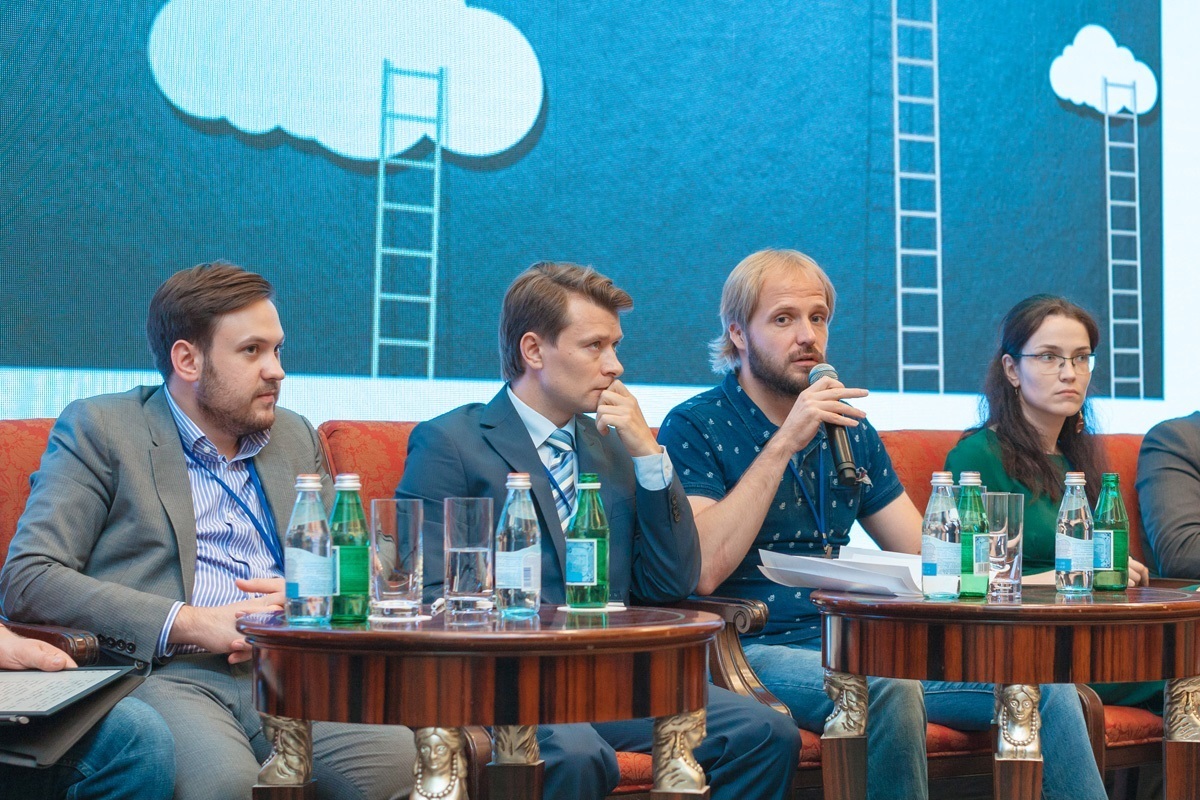
Yury Savitsky, Head of Algorithmic Trading, Zerich Capital Management IC:
- Honestly, I would buy everything. That's really, I do not see the point, why keep a bunch of IT people who are watching my iron, I do not see the point, why I upgrade the iron every time for my money, I do not see why I always call the exchange when they have problems Why do I always control the stock exchange's server, why am I doing all this? I have big castes on people who are looking at all this, you think this is one person - these are dozens of people who are watching the infrastructure. I would really find the person who did everything I needed, I would buy it all and would be pleased and happy. At the moment, I don’t know a single company that would solve my task, as I need, unfortunately, and therefore I have to do it myself, keep the IT staff, the programmers, the CISCO tuners, we’ll get there and the staff who buys equipment. , , , , , . , , .
(): — , .
: — , , , , , . , , , , , , , , , service-level.
(): — , - ?
: — , , – , , - , . , , , , , . – - , – . - , - , , , , , . , , , , , . , , , , , . , – . – . , , , . , , . , , , , . , – …
(): — , .
: — , , , , , . , , .
(): — , . , , . , , - , ?
: — , - , , , , , - - , , . , , , , - , , . , - , - QUIK', , .
(): — , , , - ?
: — , , , 100% , , 100, 99,98%, .. , , , , , , , , , . , .
(): — . , , . , , …
: — . , – , . , , , , , - , , , - , . . , , , - , , - -…, . , , , , . -, , .. , .
: — , - , . , , .. , 4 , - Enter, , , Enter , . , , , , , , , .
: — , , , , . , , .
(): — , , , . , , , , - . , - . , , .
: — , , , , , , , , , .
( - ) .
, , . , .. , .. - , - , , , , .. , , , .
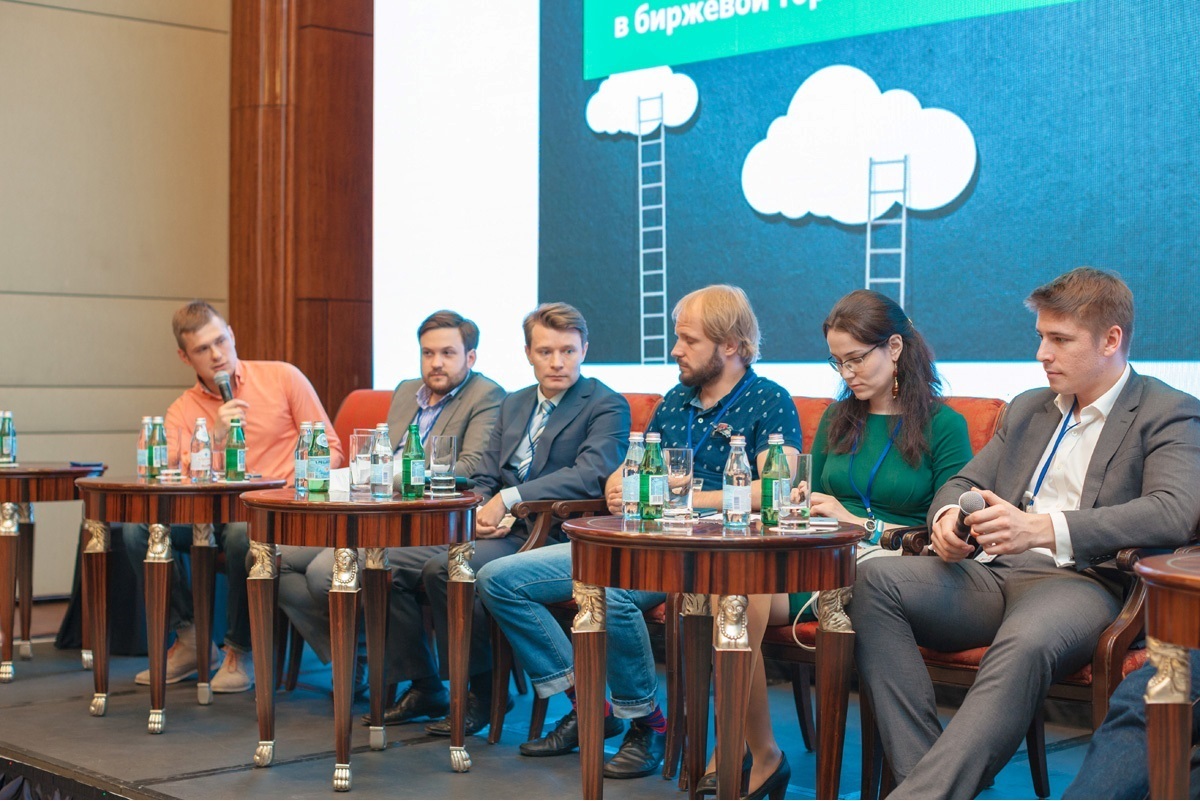
(), , :
— - , .. , ? , , , , - . , , , .
: — , , -, , service level agreement, , , - , - , - , .. . , , , , , , . , .. , , . , - , , , .
(): — . , , ?
: — , , , , -, VPS , , , , .. . . , , .., . , , , , , .
(): — , , , - ?
: — , , , , , . , , , , , , , . , , , , , , . , , . , , , , .
: — , , , , . , -. -, , , , , , , , . , SLA , . , .. , , - .
(): — . ?
: — , .. - ? , , , , -, , , , , , , IT- IT-, , , , , , , . , , -, , . , , , - . , , , , .
(): — , , .. - . , ?
: — , . , IT. IT — hardware, software, brainware. , brainware, IT-, , .. , , , , , . , , . , , , , , , . , , , , , . , , , , . , , , , .
(): — , , , .. , .
: — , , , , .. , , , , , , .. , , , , , , 20 . . , . , , , , . , 3000 , - , .
(): - -, , - ?
: — , , , , . , .
: — , 6 . , .
(): — . , . . , , . , - .
: — , , , … , , - , , . , , - , .. .
(): — , - , , , . , - ?
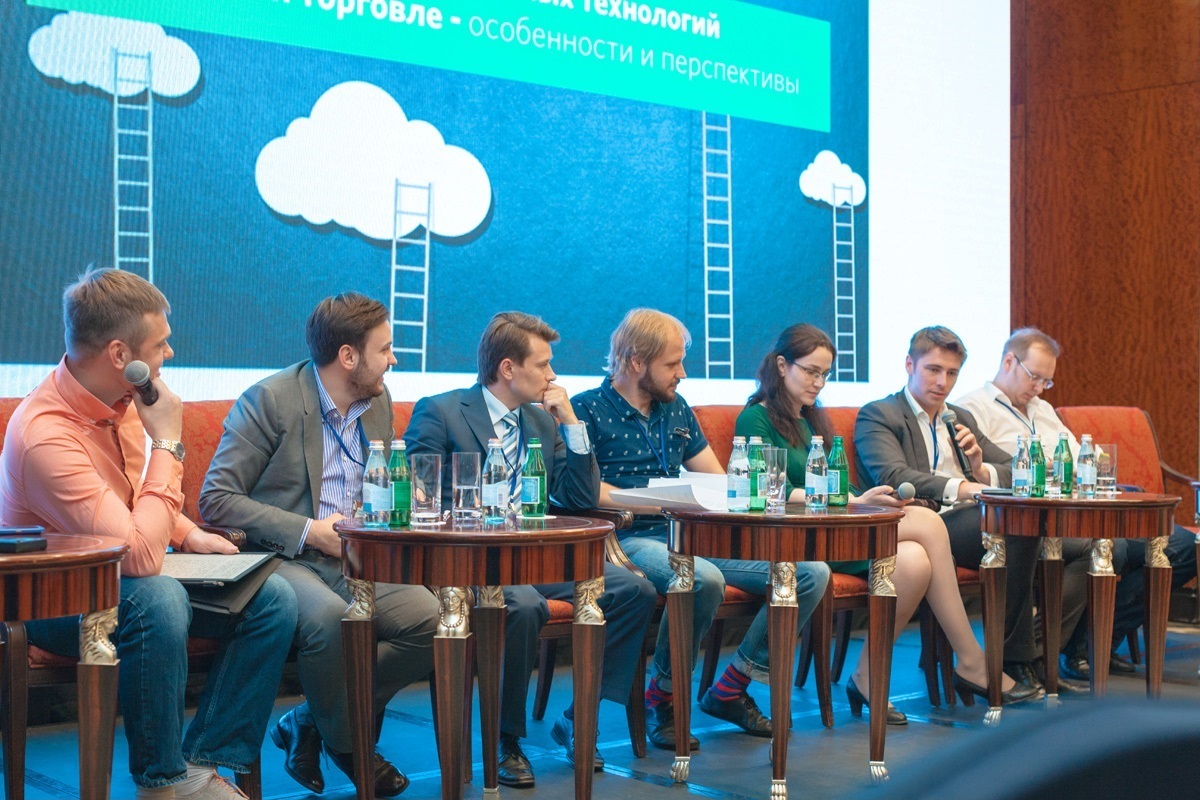
, DMA , «»:
— , , .. , .. DDOS, , .. , , . - VPS , . , , , . , , , , - , , . , QUIK, TRANSAQ, - , , , , .
(): — , - , ?
:- No, if you want virtualka on colocations, definitely not.
Lada Kobkina: — , . . , - , , , , , .. , , - - , .. . , , , , , , . , Arco Technologies , , .. QUIK, , , – , , , , , Arco Technologies . , , 50 . , , .
: — , .. - , , . , - , . , , , , , - , , , , , , , , , , , .. , , , . , , , , , , , , , , .
: — , , , .. , - , , .
: — , ? , ? , , , . What is the problem? . , , , , .
: — , , , , . , , , - , , , , , , .
: — , , , . , , , , , . , . RUVDS , -, , , . , , , , , , , , , .
(): — ! , , , , , , , . , , , ? , ?
: — , . , . , , , , , .. 2 . , , , -, , VPN, VPN , , .
(): — .
: — , , , .
(): — ! ?
: — , , , , , , — , – . .
() : — , , , ?
: — , . , , .
(): — ? , ?
: — , , , , - . , , -. , -, , . , , , , - , .. QUIK, TRANSAQ, - , , . , , , , . , , .
(): — , - ?
: — , . , . – , , , , . , , , . , , , , , , , 20 . 20 . , , . , , , - - . , , , , , . -. 20 , 100 ., , .
(): — ! , , .
: — , , Data Space, …
: — , , , , , , . , , . , , , .
(): — ?
: — , .
: — , , , , , , - , . , , . 7 , . , – , – .. . , , . , . . , , , - . , , , . . - , , , . , . , , , , .. IP , , , . , , , , , , , , .
(): — . , ?
: — , , . , , , . , , . , .., , , , , ..
(): — , , . . , - , , ?
: — , , , , ?
(): — .
: — ? ? .
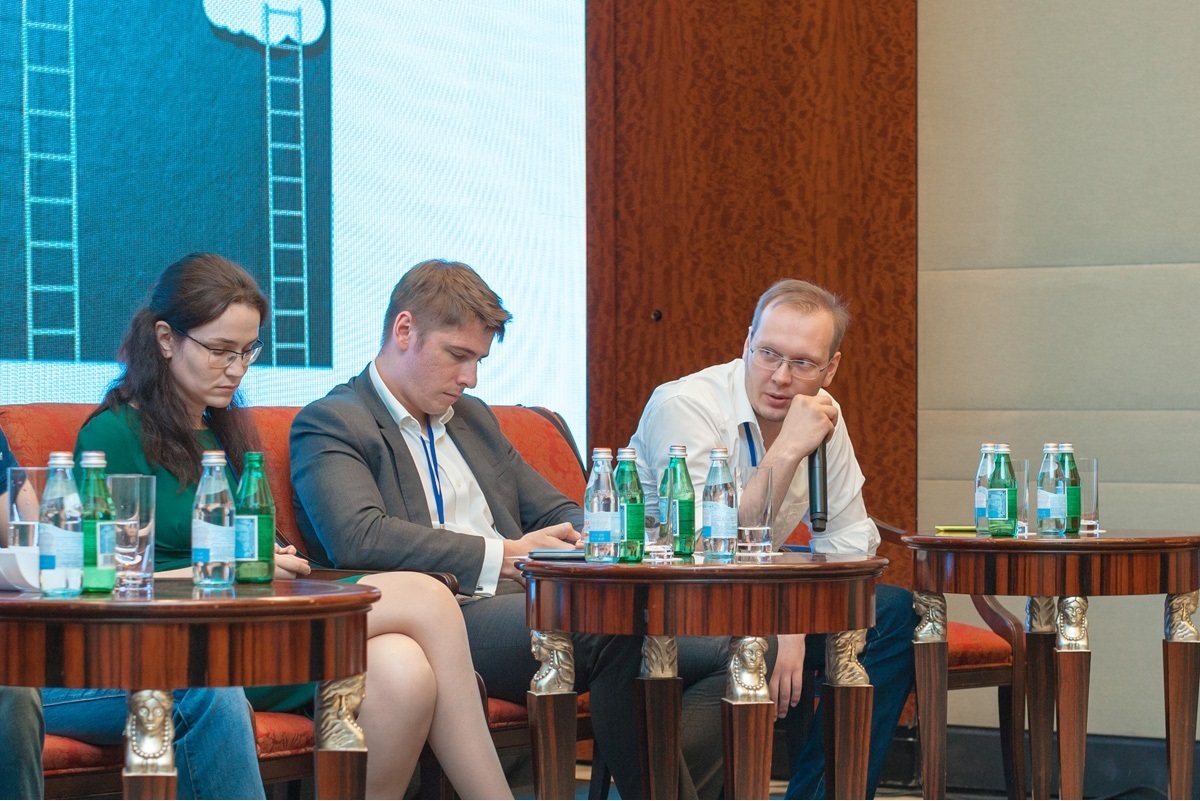
, , , « « »:
— , , . , , . , , . , , - , .
(): — , . . , , , . , , , , ?
: — , , . , , , … , , , , , . , , , - , .. , . IT-, .. , , , , , , JP Morgan , Amazon Public Cloud, , , , Deutsche Boerse, , Deutsche Boerse Cloud Exchange, , , .. , . , , . , - , . , … , - , , .
(): — , , , , . , , ?
: — , , Windows 10. , , . , , , - , . , , , , . , , , , . , , , .
(): — ! , - ?
: — , , , , , , , , , DDOS , . . , - , , , , , - . .
: — – «, , », . , . , , , . Parallels, , , , , , , , , . , , , . , , .
(): — , ? ?
: — , , , . , , . , , , , , . - , , , . , , , . , , , , .. .
(): — , - ?
: — , , . , , - ? , ?
: — , . , , - , , , , , . … , , - , , , . , , , , , ? - , 10 , .. , , , . , , , , , .
(): — , . , . - ?
, « »:
— - , , ?
: — , , .
: — ?
: — , .
: — , …
: — . , , , , , . , , . , . , , , , . . , . , . , , RUVDS , . , .
(): — - ? … . , - , , 5 , , , Trading Technologies IT-, . , . Thanks to all! !
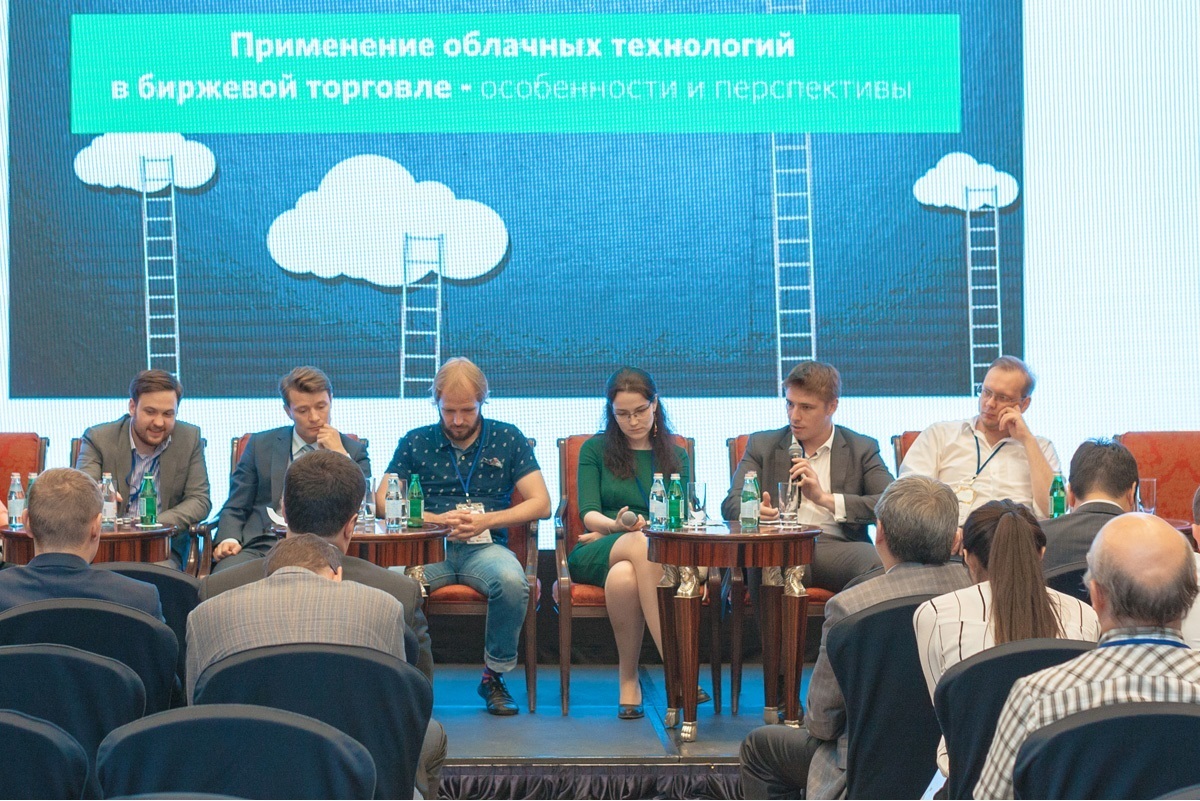
Source: https://habr.com/ru/post/305950/
All Articles